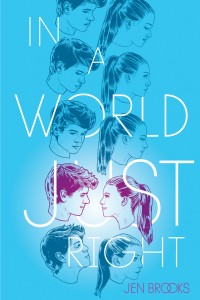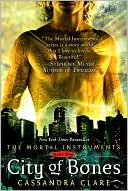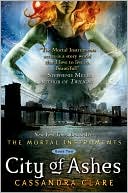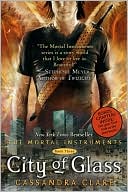December, 2011
Writing what you read?
Now that year’s end has me reviewing my list of books read in 2011, I’m counting all my excuses for not reading more than I wanted. Left to my own devices, I’m confident I would join the 100+ club for the year, but alas . . .
Graduate school is one excuse, since I spent the first six months finishing an MFA. (Of course part of that degree actually required me to read books, so that excuse is a little thin.) There is my young son, who goes to bed late at night, so I don’t often get to read in bed before sleep. My biggest excuse, though, is that I spent more time writing than in any previous year.
Writing and reading go hand in hand for a lot of writers, but for me this isn’t the case. My writing is affected by the style and content of what I read, so if I’m looking for inspiration, for encouragement, for a jump start, nothing is better than reading a good book. (I’ve noted in a previous entry that Graceling and Thirteen Reasons Why recently turned out to be good choices for me.) Once I’m on a roll writing, though, I find that reading interferes with my writing. It inhibits my voice and ideas because my head becomes filled with somebody else’s voice and ideas.
This is not to say I don’t read at all when I write. It means that certain parts of the writing process make me hesitant to read. Brainstorming, outlining, and revising are great times for me to be reading good fiction. When I’m actually producing pages, though, it’s better for me to abstain from reading or to read something non-fiction. Today I started a non-fiction book on medieval England.
How are reading and writing related for you? Do you find it hard to read while working on your own piece? Do you find certain books help you along?
Speak up:
comment| TAGS:
excuses, Graceling, Thirteen Reasons Why, writing processA page a day
You know how sometimes you have to learn certain lessons for yourself? No matter how many times the advice is given to you previously?
I’m spending less time on this blog the last few weeks because I’ve been using all my word count in my work in progress. It’s kinda like NaNoWriMo, only it takes me longer than a month. Since September 22nd, I’ve completed 50,000 words of a projected 90,000-word story, most of which has gotten done between last month and this. I truly hope to be finished with the first draft by the end of January.
My first novel took me something like six years to write. The second took another five. Both required help from graduate school structure, mentors, and critique partners.
While my second novel goes through the process of finding an agent for representation, I’ve started manuscript #3. But my writing process is totally different.
I used to have to “warm up,” so to speak, before I could write. I had to clear my email and check certain other sites and generally procrastinate before I felt ready to write. (I recall more than one game of spider solitaire being a part of this process.) Once I was warmed up, if I didn’t have at least two hours or more ahead of me, I got frustrated and blocked and couldn’t write. I used to think if I didn’t complete a major chunk (a chapter or two) in a writing session that it wasn’t even worth my time to sit down and write.
Not so anymore. I wake up early every weekday morning and most weekends with the goal of getting a page done, even if it is a page of total crap that needs to be rewritten the next day. For the first month or two, a page is all I accomplished, and it seemed like such a paltry thing, but it was enough. Lately I rarely leave the computer without at least 1,000 words complete, and usually much more.
I think by forcing myself to get out a page, I forced myself to plot. My difficulty writing had always been that I just didn’t know what should come next. When I forced myself to write a little something every day, I forced something to come next. And that lead to another next and another next and another next.
During my time at SHU I was told that if I wrote a page a day for 365 days, I’d have a novel. (I’m sure this advice should be attributed to someone specific, but I remember it as advice that was simply passed around.) A year sounded like such a short time compared to the five or six it took to do each of my first two manuscripts. Finally following that advice has led to me getting a manuscript done (well, not yet, but I’m on track and confident) in six months.
My advice? Get your butt in the chair and dive “write” in! A page a day is all it takes!
Speak up:
2 comments| TAGS:
one page, Seton Hill University, Writing Popular Fiction program, writing processThe trilogy wait
A couple of weeks ago I finished reading Cassandra Clare’s first trilogy in The Mortal Instruments world: City of Bones, City of Ashes, City of Glass. This is a YA fantasy series I had heard good things about, and I wasnt disappointed.
The thing is there is a second trilogy taking up where the first left off. The first book of the new trilogy has already been released, the second will be out in May of next year, and the third presumably sometime after that. (Clare is also in the middle of a prequel trilogy.) I was pretty satisfied by the first trilogys ending, and I really am not a very patient person when it comes to story. If the sequel trilogy were out in its entirety now, I would read it, but since it isnt, I wont. I don t like being left hanging.
Of course this is no ones problem but my own. I understand the reasons why trilogies/series are not written to completion before being published in parts.
Still, the Mortal Instruments experience reminds me of reading Dan Simmonss Hyperion, which for some reason I didnt know had three more books before the conclusion. Luckily all four books had been published when I read the first one, so I bought the others and saw the story to its end without delay.
I discovered Philip Pullmans His Dark Materials trilogy during the release of the second book, The Subtle Knife. I had to waitimpatientlyto read The Amber Spyglass. It was a long, but totally worthwhile, wait.
And then there were the years where Battlestar Galactica (the new one) and Lost were on TV. I remember that period as being a pretty rich one in my life for consuming story.
Of course this Star Wars fan had a really hard time waiting for George Lucas to finish his saga.
Do I even have to mention Harry Potter?
My point is more than a confessed dislike of delayed endings. Besides just being driven mad by the wait, I come up with my own ideas and speculations about what should happen. The more time I wait, the more speculation. A writer who can produce something even better than I imagined is the writer whose story I recommend to everyone I know. In many ways, this puts a heavy burden on a writer to outsmart all those people who, like me, will love the world theyve been introduced to and love to speculate within it.
Ive been very pleased with some of the endings Ive waited for. Not pleased with others. And I cant help but wonder if my reaction would have been different, in either direction, had I been able to experience the whole story without waiting.
As a writer of YA fantasy and science fiction, I feel the pressure to trilogize/serialize. This scares me because I dont know that I can write a final chapter better than the composite masterpiece of all my waiting readers.



